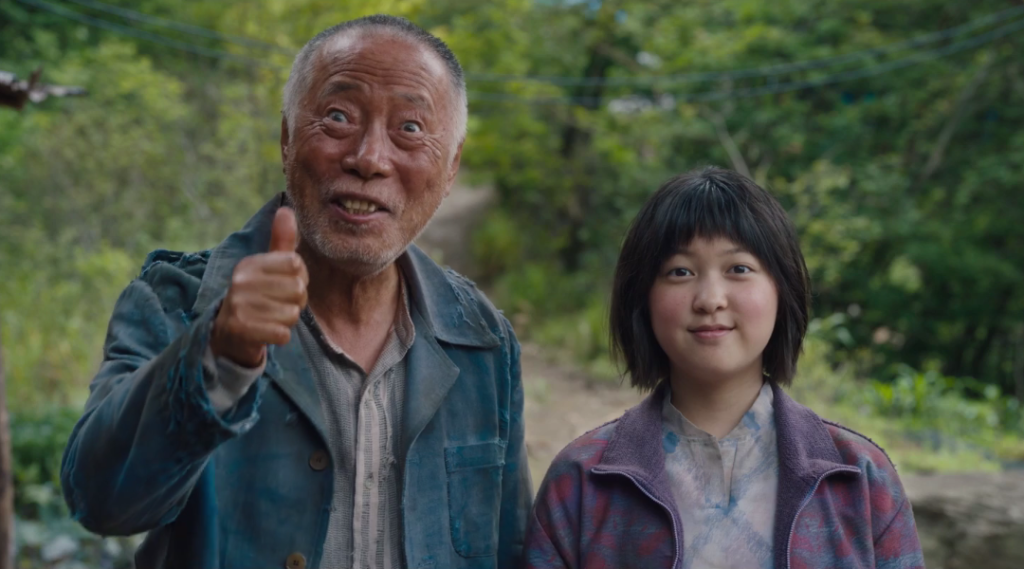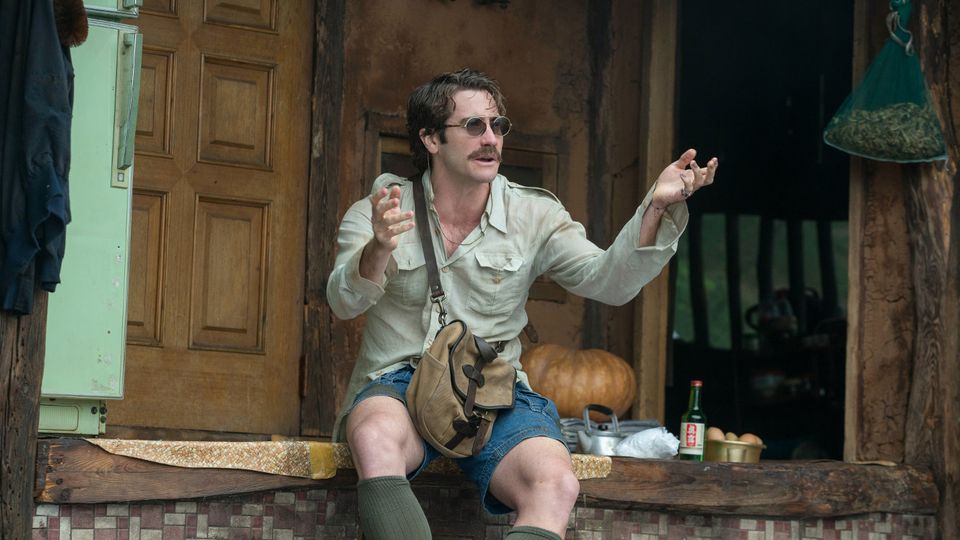Disreputation may result in Mirando Corp going down, but the newly appointed CEO, Lucy Mirando (Tilda Swinton), announces an ambitious new idea that may not only offer the company a chance to survive but also thrive. The idea involves producing a new breed of ‘superpigs’, a genetically modified, mutated version of pigs designed to taste awfully good, and then send one superpig each to 26 local farmers around the world as part of a contest. The farmer who raises the biggest pig after ten years wins this contest and bags a hefty prize. His methods of pig-farming would be studied and applied to all future breeds.
Ten years pass, and the story advances to pastoral South Korea where a young Mija (An Seo Hyun) is shown to be best friends with her superpig, Okja, a being so warm and real that it’s hard to believe it’s CGI-generated. It’s no surprise to learn that it has won the contest, and Miranda Corporation is ready to ship the pig back to New York. When Mija learns that her friend was designed for several lunch plates, she resolves to save Okja, and everything here on is plain madness. The rescue op gets weirder still when an animal rescue outfit sticks its foot in, the identity of which we learn after a brilliant action sequence against a tonally different John Denver’s “Annie’s Song”.

Other than giving Tilda Swilton and Jake Gyllenhall the license to act completely insane, the film harnesses the best of Bong Joon Ho’s directorial genius. He defines early on the extremes he’ll be touching in the form of the film’s two leading ladies – Mija and Lucy – one innocent and other outright cruel.
Okja is not a cry for vegetarianism. Far from it. It’s an infuriating thought on the savagery of American capitalism, on the horror we’re willing to tolerate for materialistic pleasures. There’s an instance where the audience gets a walkthrough of the slaughterhouse and an unpleasant demo of what happens within its walls. When Mija demands to know why these animals must be killed, the response is “because we can only sell the dead ones.” Cold, and agreed. But what about ethics?

The film dedicates good screentime showing on how authorities attempt to turn controversial situations to favorable marketing opportunities, and how most of the times it is just PR ploy. All farce.
Given the dark subject, the film is tonally bright and humorful – a perfect satire on capitalism and a coming-of-age adventure for the young girl. One of the most original narratives to have come out recently, Okja is not just my favorite sci-fi film of 2017, but by far the best film I’ve seen in 2017. Those end-credits are love. Do not miss.
Overall Rating: 5/5
Disreputation may result in Mirando Corp going down, but the newly appointed CEO, Lucy Mirando (Tilda Swinton), announces an ambitious new idea that may not only offer the company a chance to survive but also thrive. The idea involves producing a new breed of ‘superpigs’, a genetically modified, mutated version of pigs designed to taste awfully good, and then send one superpig each to 26 local farmers around the world as part of a contest. The farmer who raises the biggest pig after ten years wins this contest and bags a hefty prize. His methods of pig-farming would be studied and applied to all future breeds.
Ten years pass, and the story advances to pastoral South Korea where a young Mija (An Seo Hyun) is shown to be best friends with her superpig, Okja, a being so warm and real that it’s hard to believe it’s CGI-generated. It’s no surprise to learn that it has won the contest, and Miranda Corporation is ready to ship the pig back to New York. When Mija learns that her friend was designed for several lunch plates, she resolves to save Okja, and everything here on is plain madness. The rescue op gets weirder still when an animal rescue outfit sticks its foot in, the identity of which we learn after a brilliant action sequence against a tonally different John Denver’s “Annie’s Song”.
Other than giving Tilda Swilton and Jake Gyllenhall the license to act completely insane, the film harnesses the best of Bong Joon Ho’s directorial genius. He defines early on the extremes he’ll be touching in the form of the film’s two leading ladies – Mija and Lucy – one innocent and other outright cruel.
Okja is not a cry for vegetarianism. Far from it. It’s an infuriating thought on the savagery of American capitalism, on the horror we’re willing to tolerate for materialistic pleasures. There’s an instance where the audience gets a walkthrough of the slaughterhouse and an unpleasant demo of what happens within its walls. When Mija demands to know why these animals must be killed, the response is “because we can only sell the dead ones.” Cold, and agreed. But what about ethics?
The film dedicates good screentime showing on how authorities attempt to turn controversial situations to favorable marketing opportunities, and how most of the times it is just PR ploy. All farce.
Given the dark subject, the film is tonally bright and humorful – a perfect satire on capitalism and a coming-of-age adventure for the young girl. One of the most original narratives to have come out recently, Okja is not just my favorite sci-fi film of 2017, but by far the best film I’ve seen in 2017. Those end-credits are love. Do not miss.
Overall Rating: 5/5